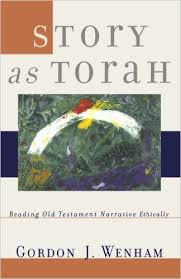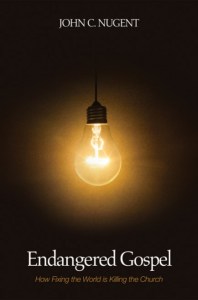
On interpreting Torah
I’m going to skip Wenham’s insightful analyses of Gen and Judges. If you ever find yourself studying or teaching these texts, you’ll want to read what Wenham has to say about their interpretation. Rather, I want to get to this point made in chapter 5:
The law sets a minimum standard of behaviour, which if transgressed attracts sanction. It regulates institutions like marriage or slavery, but it does not prescribe ideals of behaviour within marriage. Does the regulation of slavery or bigamy mean that the Old Testament endorses these institutions and regards them as ethically desirable? If the law punished adulterers with death only where the woman involved was married, does that mean affairs by husbands with unattached girls or prostitutes were permissible? If false testimony in court was subject to the lex talionis (Deut 19:16–21), does that mean that in other circumstances flexibility with truth was allowed: that slander, boasting, exaggeration, gossip could be indulged in with an easy conscience?
To pose the questions is to suggest their answer. In most societies what the law enforces is not the same as what upright members of that society feel is socially desirable let alone ideal. There is a link between moral ideals and law, but law tends to be a pragmatic compromise between the legislators’ ideals and what can be enforced in practice. The law enforces a minimum standard of behaviour. Those who fail to live up to this standard are punished. But though I may not have stolen my neighbour’s car or had an affair with his wife, I may be far from being a model citizen. I may have kept every law of the land to the letter yet be an obnoxious person to live with. To put it another way, ethics is much more than keeping the law. Or to put it in biblical terms righteousness involves more than living by the decalogue and the other laws in the Pentateuch.
On reflection these points seem self-evident. What legislators and judges tolerate may not be what they approve. Laws generally set a floor for behaviour within society, they do not prescribe an ethical ceiling. Thus a study of the legal codes within the Bible is unlikely to disclose the ideals of the law-givers, but only the limits of their tolerance: if you do such and such, you will be punished. The laws thus tend to express the limits of socially acceptable behaviour: they do not describe ideal behaviour.
Gordon J. Wenham, Story as Torah: Reading Old Testament Narrative Ethically, (Edinburgh: T&T Clark, 2000), 80.
Wenham, of course, knows that the Torah often speaks of the heart and ethical conduct generally. It’s not just civil law. But much of it really is.
And, of course, the Prophet who most clearly agrees with Wenham is Jesus of Nazareth. In the Sermon on the Mount (SOTM) Jesus is saying that meeting the “floor” requirements of Torah is not good enough. It’s not enough to refrain from murder. True Torah is to flee from hatred and instrumentalizing (treating as less than fully human) other people.
(Matt. 5:21-22 ESV) 21 “You have heard that it was said to those of old, ‘You shall not murder; and whoever murders will be liable to judgment.’ 22 But I say to you that everyone who is angry with his brother will be liable to judgment; whoever insults his brother will be liable to the council; and whoever says, ‘You fool!’ will be liable to the hell of fire.”
Jesus is not legislating new laws. He’s not disagreeing with Moses. He’s telling us how to read Moses correctly.
(Matt. 5:17-20 ESV) 17 “Do not think that I have come to abolish the Law or the Prophets; I have not come to abolish them but to fulfill them. 18 For truly, I say to you, until heaven and earth pass away, not an iota, not a dot, will pass from the Law until all is accomplished. 19 Therefore whoever relaxes one of the least of these commandments and teaches others to do the same will be called least in the kingdom of heaven, but whoever does them and teaches them will be called great in the kingdom of heaven. 20 For I tell you, unless your righteousness exceeds that of the scribes and Pharisees, you will never enter the kingdom of heaven.”
So, yes, Wenham is exactly right. Jesus says so.
 So I’m at the beach in Destin with my wife, four sons, two daughters-in-law, and two grandchildren (four and two years old).
So I’m at the beach in Destin with my wife, four sons, two daughters-in-law, and two grandchildren (four and two years old). But Sunday, shortness of breath became “can’t breathe,” became an ambulance ride to the hospital — which, by the way, is just like on TV. I wound up at Sacred Heart Hospital Emerald Coast, which is a small but very nice and very well-run hospital.
But Sunday, shortness of breath became “can’t breathe,” became an ambulance ride to the hospital — which, by the way, is just like on TV. I wound up at Sacred Heart Hospital Emerald Coast, which is a small but very nice and very well-run hospital. So the good news is that my health problem had FINALLY been diagnosed, is treatable, and is being treated. I feel MUCH better.
So the good news is that my health problem had FINALLY been diagnosed, is treatable, and is being treated. I feel MUCH better.




